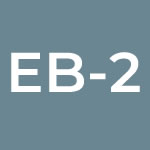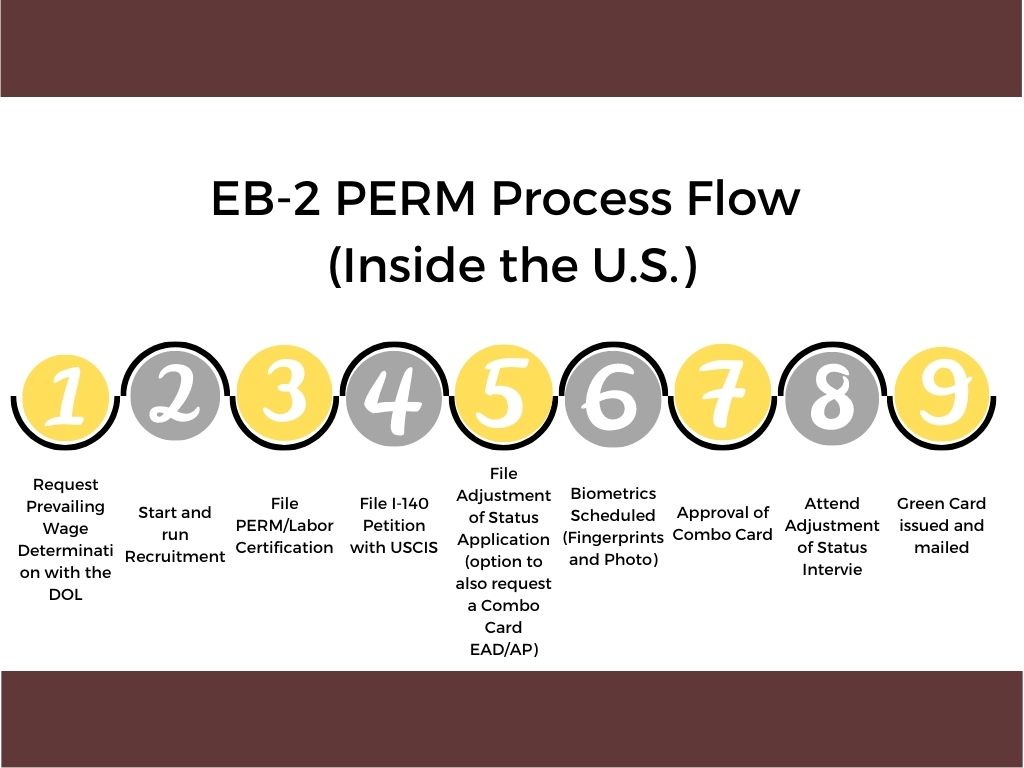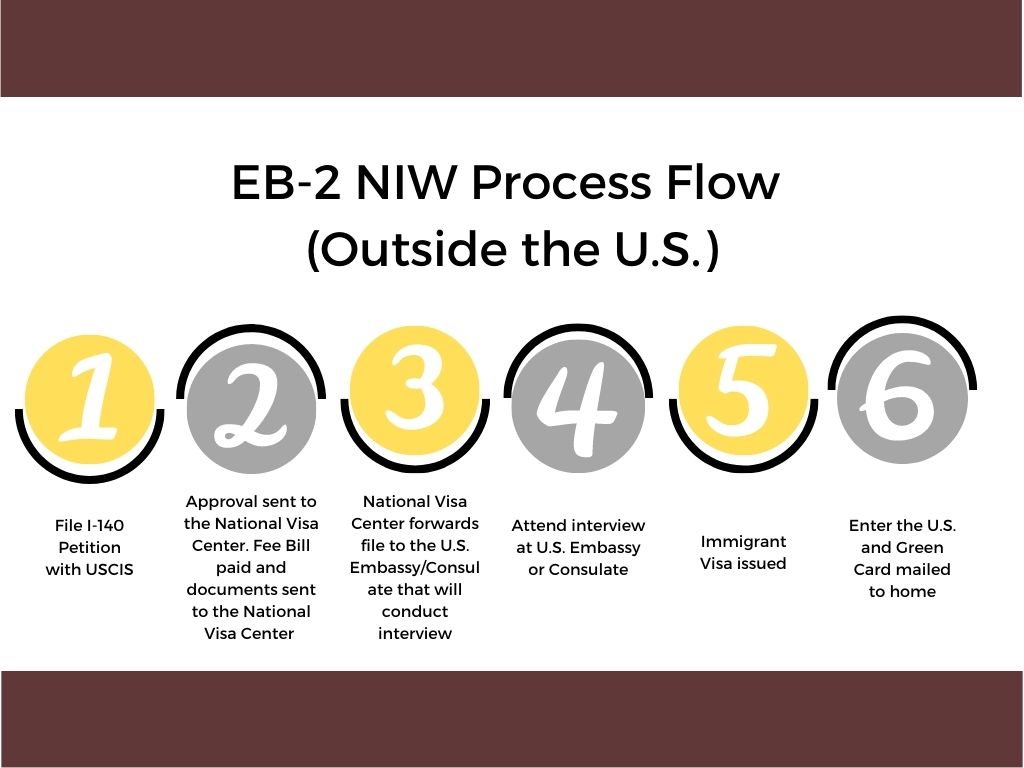EB-2 Advanced Degree or Exceptional Ability Green Card (including National Interest Waiver)
 The EB-2 immigrant visa category for professionals with advanced degrees and individuals with exceptional ability in the sciences, arts, or business generally requires a job offer and a labor certification issued by the Department of Labor (DOL). The labor certification process exists to protect U.S. workers and the U.S. labor market by ensuring that foreign workers seeking immigrant visa classifications are not displacing qualified U.S. workers.
The EB-2 immigrant visa category for professionals with advanced degrees and individuals with exceptional ability in the sciences, arts, or business generally requires a job offer and a labor certification issued by the Department of Labor (DOL). The labor certification process exists to protect U.S. workers and the U.S. labor market by ensuring that foreign workers seeking immigrant visa classifications are not displacing qualified U.S. workers.
As DOL regulations prohibit the issuance of labor certifications in self-employment scenarios, an entrepreneur will generally be unable to file an EB-2 visa petition unless he or she qualifies for a National Interest Waiver (NIW) exempting the entrepreneur from the job offer requirement and, thus, the labor certification. Even if he/she are not self-employed, it may still be challenging for he/she to obtain a labor certification if he/she have a significant ownership interest in the company, if there is a familial relationship between he/she and the stockholders, corporate officers, incorporators, or partners, or if he/she are one of a small number of employees. If any of these factors apply, his/her employer must be able to demonstrate that a bona fide job opportunity exists such that the position is open and available to U.S. workers.
An advanced degree means a master’s degree or its foreign equivalent or a baccalaureate or foreign equivalent degree plus 5 years of post-baccalaureate, progressive work experience in the field.
An exceptional ability individual is an individual who does not possess an advanced degree and meet three of the following criteria:
- Official academic record showing that you have a degree, diploma, certificate, or similar award from a college, university, school, or other institution of learning relating to your area of exceptional ability
- Letters documenting at least 10 years of full-time experience in your occupation
- A license to practice your profession or certification for your profession or occupation
- Evidence that you have commanded a salary or other remuneration for services that demonstrates your exceptional ability
- Membership in a professional association(s)
- Recognition for your achievements and significant contributions to your industry or field by your peers, government entities, professional or business organizations
- Other comparable evidence of eligibility is also acceptable.
The common process for obtaining an EB-2 green card is composed of three phases: (1) the labor certification; (2) the visa petition; and (3) the application for permanent residence. The process for obtaining an EB-2 green card under the National Interest Waiver is composed of two phases (1) the visa petition and (2) the application for permanent residence.
Each of these phases are explained in the next sections.
Labor Certification Application
A “labor certification” is a certification by the U.S. Department of Labor (DOL) that a shortage of qualified U.S. workers exists to fill a job to be offered to a foreign national and that the foreign national will be paid the “prevailing wage.” One of the most important factors in the ultimate success of a labor certification is a correct determination of the minimum requirements needed to perform the job.
2005, DOL drastically changed the way it processes labor certification cases. The primary difference between the new process (referred to as PERM) and the old process is how recruitment-related documentation is handled. Previously, supporting documentation, such as newspaper ads and other recruitment efforts, justification of the job requirements, prevailing wage determinations, etc., were submitted when the labor certification application was filed. Under PERM, while the same documentation must be prepared or assembled, it is kept by the employer and only submitted if and when requested by DOL. The employer is required to retain this documentation for five years.
Under the previous regulations, there were two types of labor certifications: Reduction in Recruitment (RIR) (also known as “fast-track,” since these types of cases were given priority handling), and traditional or non–Reduction in Recruitment (non-RIR) cases. These two classifications have been done away with. However, occupations are now classified as “professional” or “nonprofessional” and each classification has different recruitment requirements. Both classifications require two Sunday newspaper ads and a 30-day job posting with the State Workforce Agency (SWA). For professional positions, the employer must comply with at least three out of 10 listed steps: (1) job fairs; (2) employer’s website; (3) job search website other than the employer’s; (4) on-campus recruiting; (5) trade or professional organizations; (6) private employment firms; (7) employee referral program with incentives; (8) campus placement offices; (9) local and ethnic newspapers; and (10) radio or television advertisements. If the occupation is classified as a “profession” and the employer fails to do these additional steps, the labor certification application will be denied.
Applying for a labor certification does not bind the employer legally. Finally, the labor certification application may be withdrawn by the employer at any time.
The Visa Petition: EB-2 Labor Certification
The purpose of the visa petition is to prove to USCIS that: (1) the offered job has been certified by DOL; (2) the foreign national meets all of the requirements listed on the labor certification; and (3) the sponsoring employer has sufficient resources to pay the offered salary. This step will also establish the immigrant preference classification.
During the visa petition phase, it will be necessary to submit documentation from the employer demonstrating its ability to pay the offered salary. This will usually be a federal tax return, or for larger companies, a letter or annual report. In addition, it is at this step that the foreign national will be submitting documentation regarding proof of his/her education and experience. Therefore, at that time, diplomas, transcripts, and letters from previous employers, are necessary.
By the time the visa petition is filed, the foreign national must decide whether he/she will apply for permanent residence here in the United States or at a U.S. consulate or embassy abroad.
The Visa Petition: EB-2 National Interest Waiver
A National Interest Waiver (NIW) petition falls into the employment-based immigration, second preference (EB2) category (as known as EB2 NIW). Normally, a permanent job offer and an approved labor certification are pre-requisites to file an employment-based, second preference immigration petition. However, a National Interest Waiver (NIW) petition requests that the labor certification requirement be waived for the sake of the “national interest of the United States;” thus, allowing an applicant to apply for an NIW immigration petition without a labor certification or a job offer from a U.S. employer.
First, in order to be eligible to file an NIW petition, a beneficiary or applicant must have an “advanced degree” or “exceptional ability”. The beneficiary must also persuasively demonstrate that his’/her’s proposed endeavor has both substantial merit and national importance; that he or she is well positioned to advance the proposed endeavor, and on balance, it would be beneficial to the United States to waive the job offer and labor certifications requirements. Each NIW case is adjudicated on its individual merits, but the burden of proof is always on the applicant or beneficiary to establish that exemption from the labor certification will be in the national interest of the U.S.
For an NIW, even if the beneficiary has no employer, he/she may file an NIW petition on behalf of himself/herself. A U.S. employer may also file an NIW petition on behalf of the beneficiary.
To be successful with a National Interest Waiver (EB-2) case, the foreign national must establish that there is something about him/her and his/her abilities that benefit the United States as a whole and treated as higher than outstanding. In other words, there is something unique about the foreign national’s abilities that will make life better in this country. Although not contained in the statute, agency interpretations say that the foreign national must show that his/her U.S. peers could not perform the same duties and explain why he/she should be exempted from the Labor Certification process.
As there are no official list from the USCIS on evidence to show your National Interest Waiver qualifications, the criteria is usually similar to the other categories, meeting as many as possible:
- Receipt of major prizes or awards for outstanding achievements;
- Membership in associations that require outstanding achievements of its members;
- Published articles written or conference presentations by you;
- Evidence that you have been requested to judge the work of others in your field;
- Evidence of your original scientific research contribution to your field; and
- Articles written by you about your research published in journals of international circulation.
The government would like to see as many as possible of the above items, although meeting a number of them will not guarantee that the foreign national’s case will be granted.
NIW applications have clear advantages over other regular employment based immigrant petitions. Since there is no labor certification or permanent job offer requirement, an NIW is an attractive choice.
Documentation of past accomplishments and contributions play the most significant role in the UCSIS’ decision for a National Interest Waiver (NIW) approval. Past accomplishments, however, must fulfill the three-prong test. In other words, the applicant will serve the U.S. national interest to a substantially greater degree than a U.S. worker with the same qualifications.
Application for Lawful Permanent Residence
Presuming there is no backlog for an immigrant visa for the foreign national’s country of chargeability and preference category as determined by the labor certification filing date or the filing of the visa petition (i.e., priority date), if the foreign national is in the United States on a temporary nonimmigrant visa, or if he or she otherwise qualifies by regulation, the foreign national and his or her family may be eligible to apply for adjustment of status to lawful permanent resident with the regional service center of USCIS. If the foreign national is not in the United States, or does not qualify for adjustment of status, then the foreign national and his or her family must apply for immigrant visas at the appropriate U.S. consulate in his or her home country or country of residence. If permanent residence is applied for in the United States, it is called “adjustment of status” processing. If applied for outside the United States, it is called applying for an immigrant visa.” The result of either is the same: permanent residence.
As part of the ADJUSTMENT OF STATUS Application process, a foreign national may also apply for an employment authorization document (EAD) and advance parole (AP). A foreign national is not required to apply for an EAD or AP at the time he/she files his/her ADJUSTMENT OF STATUS Application or while his/her ADJUSTMENT OF STATUS Application is pending. It can take U.S. Citizenship and Immigration Services (USCIS, legacy Immigration and Naturalization Service) several months to approve a foreign national’s ADJUSTMENT OF STATUS Application. If a foreign national’s circumstances change during that time period, having the approved EAD and AP available will provide maximum flexibility even if for now a foreign national plan to continue to maintain his/her nonimmigrant status (such as H-1B, L-1, or O-1 status).
What is an EAD?
A foreign national can obtain an EAD card by filing an EAD Application at the same time he/she files his/her ADJUSTMENT OF STATUS Application, or after the ADJUSTMENT OF STATUS Application is filed. Once approved, the EAD card allows its holder to work for any employer while the card is valid. By contrast, a foreign national’s nonimmigrant status (H-1B, O-1, L-1, etc.) allow him/her to work only for the employer who filed the nonimmigrant petition. Once a foreign national has an EAD in hand, he/she may legally work for any employer (but remember that even with an EAD, a foreign national must have the intent to work for the sponsoring employer, in case of employment-based permanent residence, at the time his/her ADJUSTMENT OF STATUS Application is approved). EADs are valid for up to one year at a time. Spouses and dependent children may also obtain EADs, if desired.
What is an Advance Parole?
A foreign national can obtain AP by filing an AP Application at the same time he/she files his/her ADJUSTMENT OF STATUS Application, or after the ADJUSTMENT OF STATUS Application is filed. Once approved, AP allows a foreign national to leave the United States and re-enter without having a valid nonimmigrant visa stamp in his/her passport. Unless a foreign national is maintaining H-1B or L-1 status, after his/her ADJUSTMENT OF STATUS Application is filed, a foreign national must obtain AP before leaving the United States. For example, if a foreign national has O-1 status and he/she files an ADJUSTMENT OF STATUS Application and then later a he/she leaves the United States without AP, his/her ADJUSTMENT OF STATUS Application will be considered by USCIS to have been “abandoned” and will be denied. This would cause great delay and expense because it could take weeks or months to get a foreign national back to the United States in new O-1 status, and then a new ADJUSTMENT OF STATUS Application package would have to be filed all over again. Traveling with AP prevents such problems from occurring. AP is valid for multiple entries during the validity of the document.
At the lawful permanent residence application stage, the USCIS (or consular office) will ask whether the foreign national has: (1) been a member of the Communist Party, terrorist groups, or similar organizations; (2) been arrested or convicted of any crimes; (3) ever received public assistance, (4) lied to obtain a visa, (5) worked in the United States without permission, or (6) overstayed his/her legal status, etc. We will go into more detail about these factors later.
In general, employment-based and family-based adjustment of status cases are subject to interviews with the local USCIS district office. Individuals who undergo consular processing of employment-based or family-based cases are also required to attend an interview.
At the end of this step, the foreign national will be granted permanent residence and issued a “green card.”




